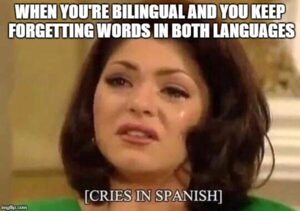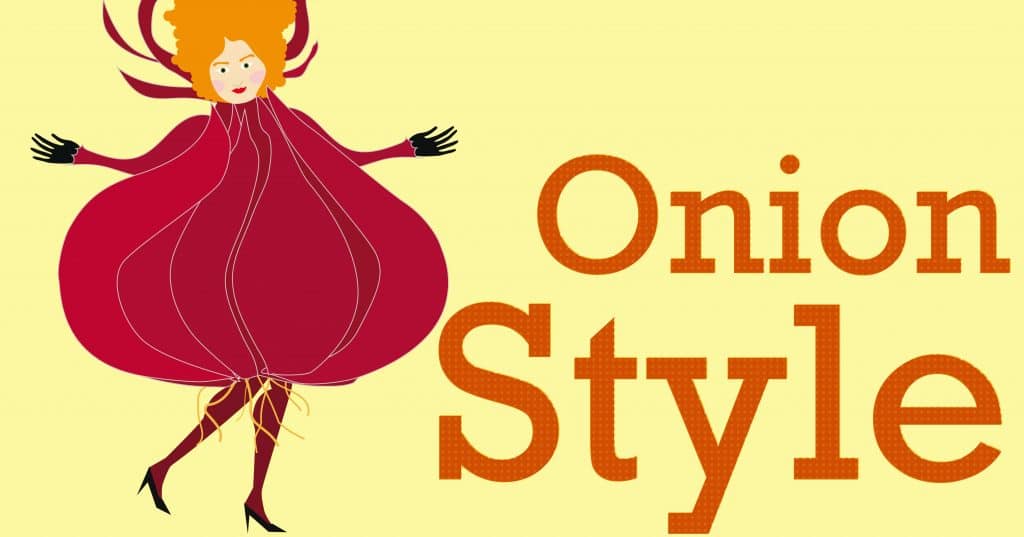Home » What’s it like inside the mind of a bilingual?
If you grew up with family members talking to you in different languages, chances are you’re bilingual.
In my case, my British mother moved to Italy in her early 20s, and fell in love with my Italian father. They moved to Rome, where they had me… As I was growing up my parents spoke to me in English and Italian, making me bilingual!

A person is ‘bilingual’ when they are able to use two languages equally well: this is usually the case for children whose parents come from different countries. There are many debates as to what bilingual really means. If you think about it, you could consider anyone who speaks more than one language as bilingual. But can you call yourself bilingual just because you speak two languages? Unfortunately not…
What makes a bilingual person different to a ‘polyglot’ (someone who can speak many languages) is having the same instinctive knowledge of more than one language, usually from being exposed to them from a young age.
Let’s clarify:
Being a native speaker of a language means that you have an almost innate sense of the meaning of words because you’ve grown up with them and you’ve been exposed to them in all sorts of different ways. It’s as if, thanks to some strange divine intervention, the overall meaning of things is given to you, for free, even when you don’t know what a word actually means.
Now, imagine you have that same instinct, but for two languages. That’s how you’d define yourself as bilingual. Cool, huh?
The majority of bilingual people tend to use one language more than the other. So sadly, being bilingual does not mean having superpowers. You’re likely to mix up your languages and make mistakes. Being bilingual means you need to watch out for false friends.

A false friend is a word or expression that looks or sounds the same in two languages, but actually has a completely different meaning in each one. Let me give you some (personal) examples:
| Italian | What you think it means | Actual English meaning |
| pretendere | to pretend | to demand |
| sensibile | sensible | sensitive |
| sensitivo | sensitive | emotional |
I speak some Spanish too and there’s sometimes some similar confusion there. For example, gamba, which means ‘leg’ in Italian, means ‘prawn’ in Spanish! So you can see how easy it is to get confused between two languages.
When you’re in a situation where you need to use one of these words, it’s as if your brain pauses just before you start speaking: a little invisible man inside your head reaches for the different language dictionaries stored in your brain and opens them up on a big imaginary table.
The meanings are all jumbled up until that little invisible man starts to work out what each word means in each language. You decide which one to use in your conversation and most of the time, you get it right; but sometimes you end up mixing up the meanings and using the wrong word, which can produce some hilarious results!
Being bilingual, one question I’m often asked is “Do you consider yourself a native Italian or English speaker?” My response is often “both”. The struggle is real!
Every language is made up of unique words or expressions that can be hard to translate to other languages. Let’s look at an example:
This Italian expression is often used at this time of year: vestirsi a cipolla. It literally means “to dress like an onion”, but don’t go round saying that in English… You might get some funny looks. With a little imagination, you can guess what it means: to wear several layers of clothing.

Every language we speak gives us a different perspective on the world. When you’re bilingual, you see the world through two different lenses.
Language allows us to create all sorts of feelings, images and colours in our mind. So having this with not just one language but two, you end up with one big colourful world made up of unique experiences that change the way you think, interact and react.
Isn’t language a beautiful thing?!